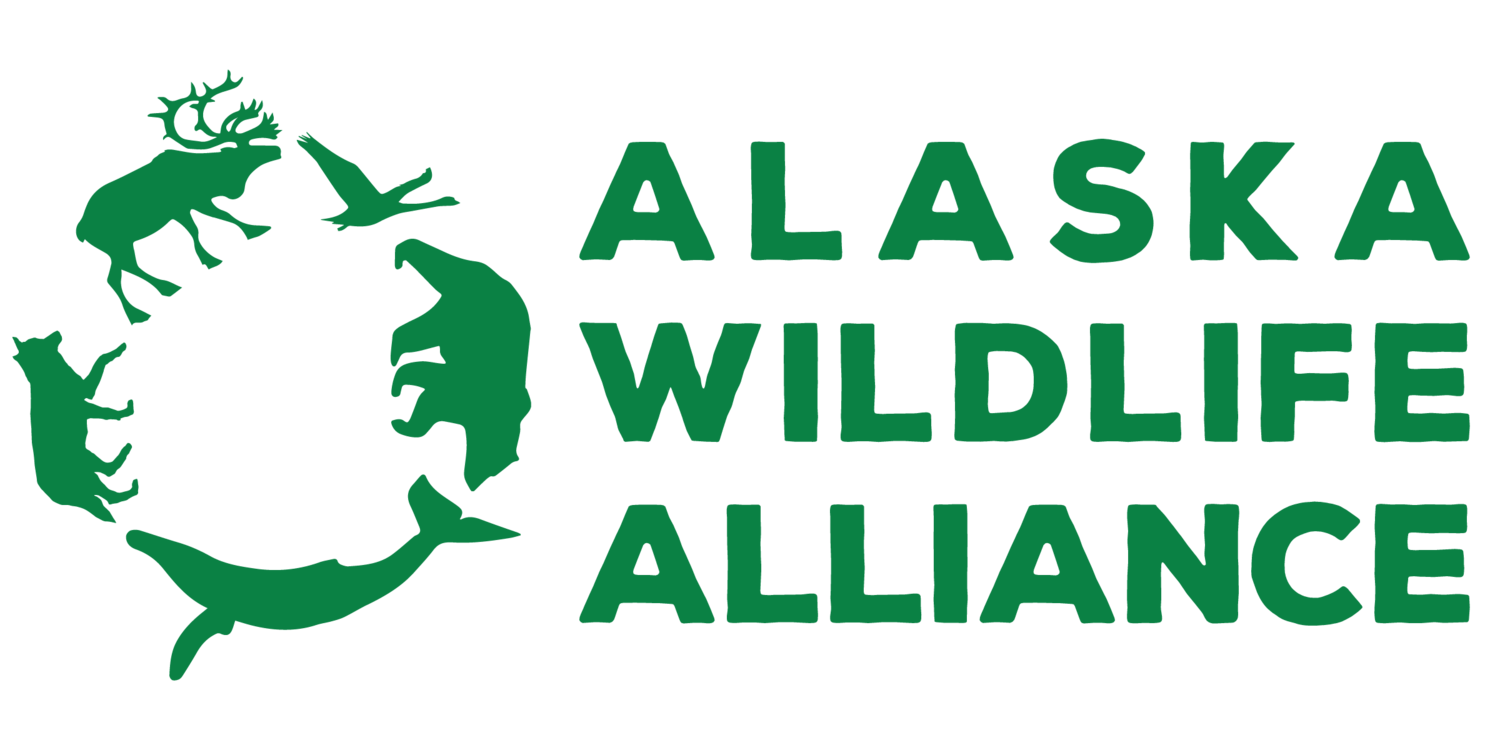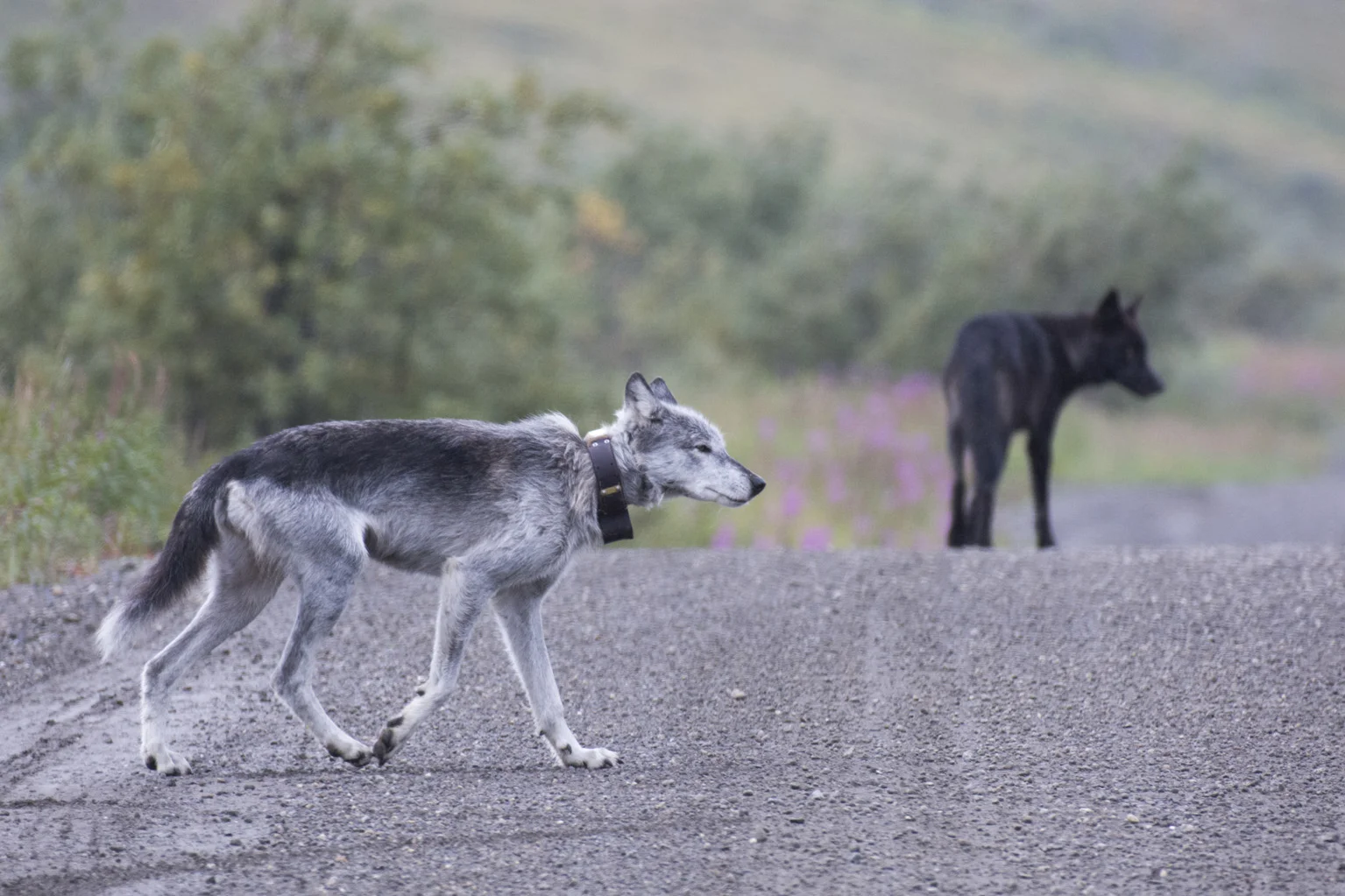A Good Wolf - Anchorage Screening
Bear tooth theatrepub, Anchorage
June 20 at 5:30PM; $12 tickets
A Good Wolf is a feature-length documentary film examining a 40-year conflict over a single tract of land adjacent to Denali National Park—a volatile struggle between state and federal authorities, fur trappers and wildlife advocates, and competing human interests on public lands. Armed with thorough data, biologists and activists bring a new proposal to state authorities, hoping to regain protections for wolves near the park boundary. But local trappers are adamantly opposed. Hanging in the balance are some of America’s most iconic landscapes and wild creatures, including the remarkable Wolf 1202.
What exactly is a "good wolf"? That depends on who you ask. A century ago, many Americans would have echoed a common government bounty slogan, “A good wolf is a dead wolf.” But times have changed. Now, if you are a wildlife activist, a good wolf is probably a wild one, free to live its life unhindered by human interference. For a hunter or fur trapper in rural Alaska, the answer might have more to do with providing sustenance and livelihood for you and your family. To a scientist, good wolves might be the ones that provide useful data. If you are a visitor to Denali National Park, a good wolf might be the one that crosses the road in front of your tour bus for a photo opportunity.
But this film is about much more than wolves. It’s about the complexities and difficulties of balancing competing human interests on public lands. It explores opposing ideas about wild predators’ place among humans, and what (if any) responsibility we might have to manage them within natural ecosystems. And it illuminates fundamental differences in how people determine the value of wildlife, wilderness, and National Parks.
Why does this matter? Denali National Park is said to be the historical epicenter of wolf controversy in America, which runs deep and wide. Transboundary wildlife issues are almost ubiquitous in National Parks across the country and have recently come to the forefront in places like Yellowstone, where reintroduced wolves are simultaneously lauded by environmentalists for their perceived positive ecological impacts, and intentionally targeted by hunters and ranchers at the park boundary. As the gray wolf faces increased pressure in the Lower 48 after federal delisting from the Endangered Species Act, the debate over its place among humans is rekindled. To unpack the deeper themes at play in this controversy, we can return to the unabated conflict at its epicenter.
Alaska Wildlife Alliance invited independent filmmaker, Ramey Newell, to explore the ongoing controversy over hunting and trapping of wolves at the boundary of Denali National Park. A Good Wolf investigates three primary viewpoints: wildlife activists, local hunters/trappers, and Denali National Park biologists. Their stories and work give viewers a compelling glimpse into the various ways residents relate to animals and each other. Through these interwoven narratives, along with that of the incredible Wolf 1202, we can better understand the historical and contemporary issues at play, including political, regulatory, scientific, and cultural influences.
Wolf 1202, wearing a GPS tracking collar, crosses the road in Denali National Park.
Leghold traps hang from the wall of a local trapper’s gear shed.
With your help, this film was completed in 2024. Now we need to get it in front of audiences!
Documentary filmmaking is expensive and time-consuming work. But the truth is that making the film is only half the battle – now we need to get it in front of live audiences, generate buzz, and spur new conversations in the communities that have the most at stake. This requires venue rentals, travel costs, arranging panel discussions, and disseminating PR materials. We’re grateful for the continuing support of many community members — without you, we wouldn’t have been able to make this film a reality at all. Join us in distributing it by making a tax-deductible donation.
$50 or more: Ramey will send you an MP3 of wolves howling, recorded during the film’s production. You can use is for a ringtone, morning alarm, or just to hear them sing!
$100 or more: You’ll get the wolf howl MP3 and the ability to watch A Good Wolf before it is publicly released online with a private link to the completed film!
$250 or more: Your name will be added to the thank-you section on the film’s website. Plus you’ll get a thank-you on social media, an MP3 of wolf howls, and a private link to view the film.
$1,000 or more: Sponsors a screening in your community! Your name or company logo listed as the sponsor of a community screening on the website and in all official communications about the screening. Plus a shout-out on social media, a wolf howl MP3, and a private viewing link!
Meet our Film Crew
We've got a solid team of both emerging and experienced filmmakers with well-rounded skills and the ability to fulfill multiple roles. When you're on a small team, you have to be nimble and flexible, and we're all ready to jump in wherever needed!
DIRECTOR/PRODUCER: Ramey Newell is an independent filmmaker and multidisciplinary artist. Her short films have screened at festivals and in galleries, museums, and other art spaces throughout the United States, Canada, the United Kingdom, and Australia, including: the National Gallery of Art in Washington, D.C.; Alchemy Moving Image Festival in Hawick, Scotland; Mountainfilm in Telluride, Colorado; SCINEMA International Science Film Festival in Australia; and Antimatter [Media Art] in Victoria, Canada. Ramey’s films have also earned awards such as the Jury’s Stellar Award (Grand Prize) at Black Maria Film Festival (2018) and Best Director at Mirror Mountain Film Festival (2017). She was also a 2016 Flaherty Seminar Fellow, a 2019 IWFF Filmmaker Fellow, a 2021 Jackson Wild Summit Fellow, and a 2021 Whistler Film Festival Documentary Lab participant.
CAMERA/SOUND: Lindsay Taylor Jackson is a cinematographer and emerging filmmaker. She has worked as a Cinematographer and as an Assistant Editor on The Address for Florentine Films under Ken Burns and Editor Craig Mellish (ACE), after first serving as an intern on The Dust Bowl and The Roosevelts: An Intimate History. Lindsay attended the film department at Keene State College, a study abroad Production Track at The Academy of Film and Performing Arts in the Czech Republic, and the first Cinematography Intensive for Women at the American Film Institute (AFI). She also recently completed her second feature-length documentary, Velvet Citizen.
ADVISORS/CONSULTANTS:
Historical/factual advisor: Professor Tim Rawson, PhD., Alaska Pacific University. Author of “Changing Tracks: Predators and Politics in Mt. McKinley National Park” (2001).
Production Coordinator: Nicole Schmitt, Executive Director at the Alaska Wildlife Alliance.






